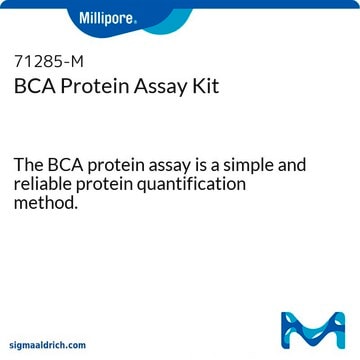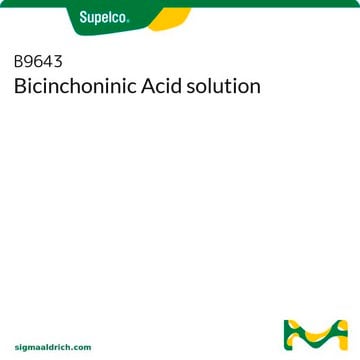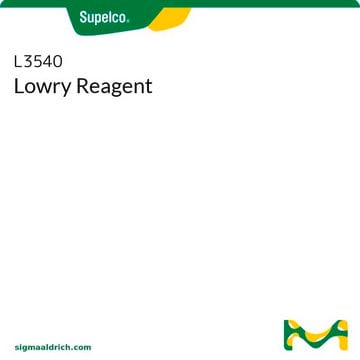QPBCA
QuantiPro™ BCA Assay Kit
for 0.5-30 μg/ml protein
Synonym(s):
BCA Assay, Protein determination by BCA, bicinchoninic acid reagent
About This Item
Recommended Products
Application
Features and Benefits
- Accurate across a broad range of protein concentrations
- High sensitivity; linear response form 0.5 to 30 μg/ml of protein
- Stable color complex
- Reduced susceptibility to detergents
Principle
Storage and Stability
Legal Information
Kit Components Only
- Copper(II) sulfate solution, 4 % (w/v) (prepared from copper (II) sulfate pentahydrate) 12 mL
Kit Components Also Available Separately
- P0914Protein Standard Solution: 1.0 mg/ml bovine serum albumin in 0.15 M NaCl with 0.05% sodium azide (flame-sealed glass ampules) 10 x 1SDS
Application
related product
Signal Word
Danger
Hazard Statements
Precautionary Statements
Hazard Classifications
Aquatic Acute 1 - Aquatic Chronic 1 - Eye Dam. 1 - Met. Corr. 1 - Skin Irrit. 2
Storage Class Code
8A - Combustible corrosive hazardous materials
Certificates of Analysis (COA)
Search for Certificates of Analysis (COA) by entering the products Lot/Batch Number. Lot and Batch Numbers can be found on a product’s label following the words ‘Lot’ or ‘Batch’.
Already Own This Product?
Find documentation for the products that you have recently purchased in the Document Library.
Customers Also Viewed
Articles
Cell lysis challenges and protein extraction variables for Western blot sensitivity and reproducibility.
Cell lysis challenges and protein extraction variables for Western blot sensitivity and reproducibility.
High-throughput proteomics advances with improved analysis methods and mass spectrometry.
Cell lysis challenges and protein extraction variables for Western blot sensitivity and reproducibility.
Our team of scientists has experience in all areas of research including Life Science, Material Science, Chemical Synthesis, Chromatography, Analytical and many others.
Contact Technical Service










